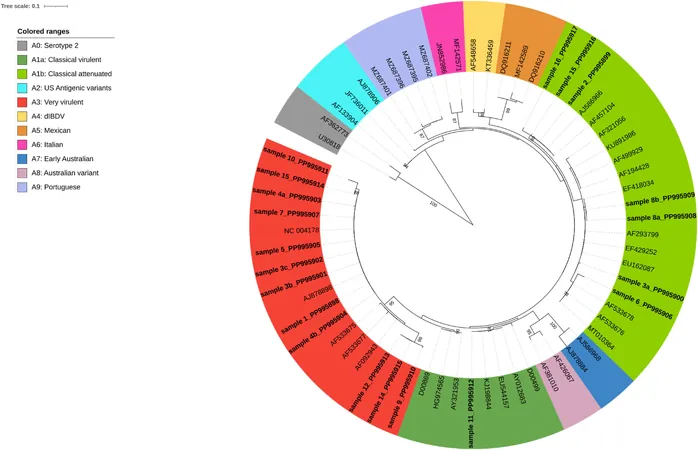
Quit Smoking Quickly: New Study Links Early Cessation to Increased Survival After Cancer Diagnosis!
2024-11-10
Author: Rajesh
Introduction
A recent study published in JAMA Oncology has found that smoking cessation treatments initiated soon after a cancer diagnosis can significantly enhance survival rates for patients battling cancer. The research highlights the urgency of quitting smoking and the benefits of structured support programs right at the point of diagnosis.
Impact of Early Cessation
Patients who stopped smoking within three months of their diagnosis experienced a remarkable survival improvement over a 15-year span, with an adjusted hazard ratio (aHR) of 0.75, indicating a 25% reduction in mortality risk. Those who managed to quit within six months showed an aHR of 0.79, while abstaining after nine months resulted in an aHR of 0.85. Notably, participants in the Tobacco Research and Treatment Program (TRTP) who quit within three months and continued treatment saw a substantial increase in survival, averaging an additional 1.8 years.
Survival Rates
Data reveals that for patients who engaged in cessation treatment within six months, the survival at the 75th percentile surged from 2.1 years for ongoing smokers to 3.9 years for those who quit. For those who began treatment between six months and five years post-diagnosis, survival rates improved from 4.8 years to 6.0 years for nonabstainers versus abstainers.
Study Demographics
The research involved a robust sample size of 6,593 patients, with the primary analysis focusing on 4,526 of these participants. These patients primarily included individuals diagnosed with various types of cancer, including breast, lung, and hematological cancers. Furthermore, the study found that women represented nearly half of the participants, reinforcing the need for gender-sensitive approaches in smoking cessation.
Clinical Implications
One of the key clinical takeaways from the study is the potential impact of integrating structured smoking cessation programs into cancer treatment regimens. "Providing a structured smoking cessation program at the time of a cancer diagnosis can have a demonstrable positive association with life expectancy," the authors emphasized.
Limitations and Future Directions
Despite the positive findings, the study did have limitations. Factors such as lack of information about non-cancer-related health conditions and the representativeness of the sample were noted as areas for further exploration. Nonetheless, the evident link between smoking cessation and improved survival outcomes in cancer patients underscores the critical importance of making smoking cessation a standard component of cancer care.
Conclusion
This compelling evidence offers hope not just for cancer patients, but also sends a clear message: quitting smoking can dramatically change the course of cancer survival. Smokers diagnosed with cancer should seek out cessation programs immediately to maximize their chances of living a longer, healthier life.



 Brasil (PT)
Brasil (PT)
 Canada (EN)
Canada (EN)
 Chile (ES)
Chile (ES)
 España (ES)
España (ES)
 France (FR)
France (FR)
 Hong Kong (EN)
Hong Kong (EN)
 Italia (IT)
Italia (IT)
 日本 (JA)
日本 (JA)
 Magyarország (HU)
Magyarország (HU)
 Norge (NO)
Norge (NO)
 Polska (PL)
Polska (PL)
 Schweiz (DE)
Schweiz (DE)
 Singapore (EN)
Singapore (EN)
 Sverige (SV)
Sverige (SV)
 Suomi (FI)
Suomi (FI)
 Türkiye (TR)
Türkiye (TR)